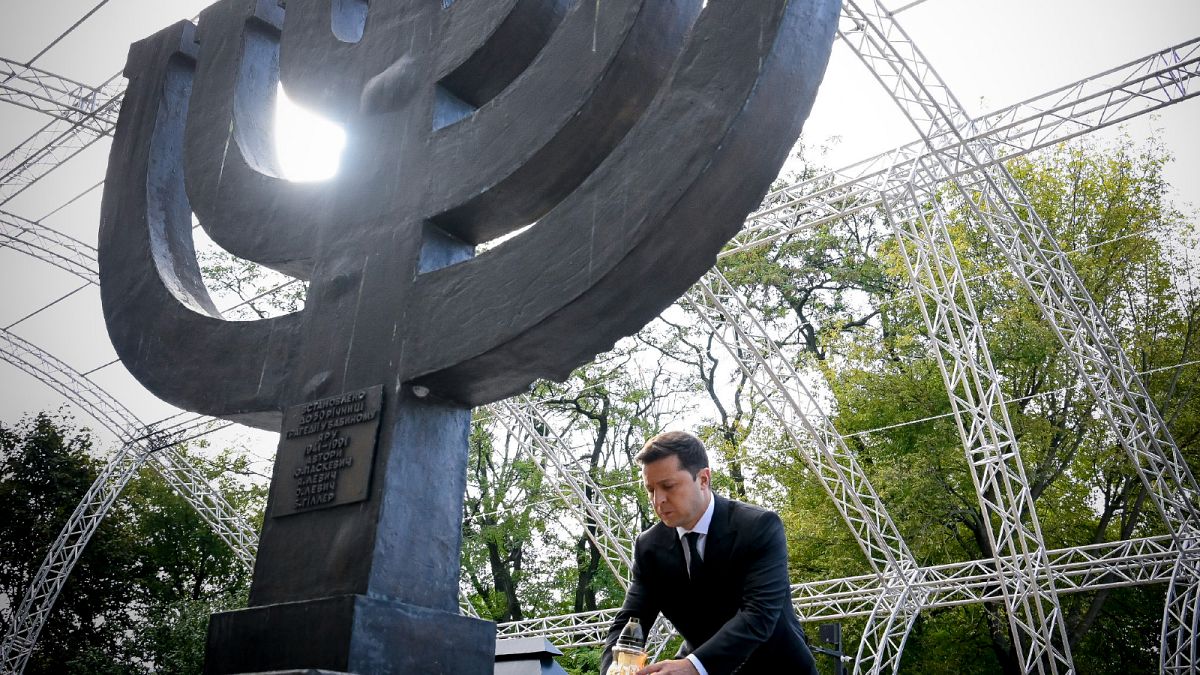Around 34,000 Jews were killed by Nazi German soldiers on September 29, 1941, at the Babi Yar ravine in Ukraine.
A European Jewish delegation visited the Babi Yar ravine in the Ukrainian capital Kyiv on Wednesday, the scene of a World War II extermination of around 34,000 Jews by Nazi German soldiers on September 29, 1941.
"It is a mass grave. And for years, Babi Yar was not known. We did not know what happened here because it was hidden during the Soviet period, but also afterwards by Ukraine," said Yossi Lempkowicz, editor-in-chief of the European Jewish Press in Belgium.
Several European elected officials were present at the commemoration. Among them, MEP David Weytsman.
For Weytsman, to remember is to avoid repeating the mistakes of the past in Ukraine, but also in Europe.
"In Belgium, the young and not so young people do not know enough about the historical facts, and today we are examining these historical facts here. And if we want to fight more effectively against anti-Semitism, these facts, this historical truth which is mocked by some, must be better known," he said.
On the site of Babi Yar, a wailing wall has been erected to commemorate the 34,000 Jews who lost their lives in 1941.
For the Jews of Ukraine and Europe, the Russian, Western, and American military movements make them fear the worst.
"You never know what can happen in a war situation when there are soldiers not too far from here on the borders that will come. You never know from one day to the next what will happen. The Jews who lived here before had no idea that one day they would be brought here and slaughtered," said Alexander Benjamin, director of the European Jewish Association in Belgium.
